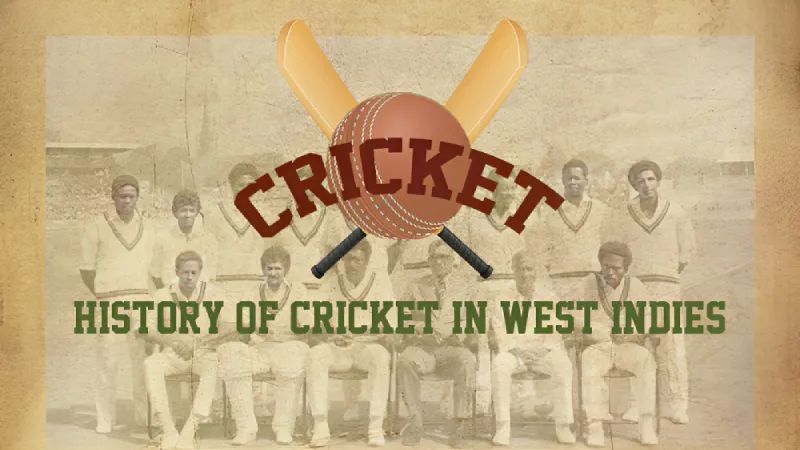The history of cricket in West Indies is rich and deeply intertwined with the social, cultural, and political developments of the region. Cricket was introduced to the West Indies during the colonial era, primarily by the British, who established the sport as part of the cultural fabric of the Caribbean.
Here is a brief overview of the history of cricket in the West Indies:
Colonial Roots (17th Century): Cricket was introduced to the West Indies in the 17th century during the colonial period when the British established sugar plantations in the Caribbean. The game was played by the British colonizers and later adopted by the local population.
Growth and Popularization (18th Century): Cricket gained popularity in the 18th century, becoming a prominent sport in the West Indies. Matches were played between British military personnel, plantation owners, and the local population. The sport provided a social outlet and a sense of identity for the people of the region.
Formation of Cricket Clubs (19th Century): Cricket clubs began to emerge in the 19th century, contributing to the formalization of the sport in the West Indies. These clubs played a crucial role in organizing matches and fostering competition.
West Indies Cricket Board (1927): The West Indies Cricket Board (WICB) was formed in 1927, bringing together the cricketing nations of the Caribbean. The WICB played a vital role in organizing and promoting cricket at the regional level.
Emergence of West Indies as a Cricketing Power (20th Century): In the mid-20th century, West Indies cricket experienced a significant transformation. The region produced a generation of exceptional players known as the “Three Ws” – Frank Worrell, Everton Weekes, and Clyde Walcott. West Indies became a dominant force in world cricket during the 1970s and 1980s, achieving unprecedented success in both Test and One Day International (ODI) cricket.
Calypso Cricketers Era (1950s-1980s): The West Indies team during this period was often referred to as the “Calypso Cricketers” due to their flamboyant and entertaining style of play. Legendary players like Sir Garfield Sobers, Sir Vivian Richards, Clive Lloyd, and Malcolm Marshall were instrumental in the team’s success.
World Cup Victories: The West Indies won the first two Cricket World Cups in 1975 and 1979 under the captaincy of Clive Lloyd. These victories solidified the West Indies’ reputation as a cricketing powerhouse.
Challenges and Structural Issues: West Indies cricket has faced challenges related to administration, disputes between players and cricket boards, and issues with player availability for international matches. These challenges have, at times, affected the overall performance and consistency of the team.
Youth Development: Efforts have been made to focus on youth development and grassroots cricket in the region to ensure a steady supply of talented players for the national team. Development programs and academies aim to nurture young cricketers and prepare them for international competition.
Cultural Impact: Cricket holds immense cultural significance in the West Indies. The sport is deeply ingrained in the social fabric of the Caribbean, and the passion for cricket is reflected in the fan base’s enthusiasm and support for the team.
T20 Success and Evolution: The West Indies team has found success in T20 cricket, winning the ICC T20 World Cup in 2012 and 2016. The rise of T20 leagues, including the Indian Premier League (IPL) and CPL, has provided West Indian players with additional opportunities and exposure.
Women’s Cricket: Women’s cricket in the West Indies has been gaining prominence, and the West Indies women’s team has achieved notable success in international competitions. Players like Stafanie Taylor have played a key role in raising the profile of women’s cricket in the region.
Modern Era (21st Century): West Indies cricket has had its ups and downs in the 21st century. While the team has produced standout performances, it has also faced challenges in maintaining consistency. T20 cricket, particularly the emergence of the Caribbean Premier League (CPL), has added a new dimension to cricket in the region.
Despite the challenges, cricket remains a significant part of the West Indies’ cultural and sporting heritage. The region continues to produce talented players who contribute to the global cricketing landscape.
